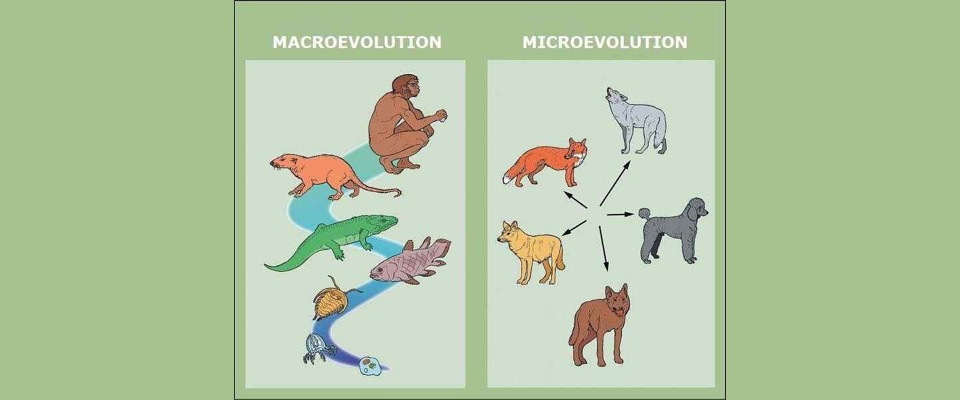
Is macroevolution an accumulation of a lot of microevolution?
September 2024
Many people think that there is only one type of change and that the accumulation of a lot of small changes eventually leads to a big change. In a peer-approved paper, William DeJong and Hans Degens show that there are two types of change that are fundamentally different from each other and that the accumulation of a lot of microevolution cannot produce macroevolution. As a result, the abundant evidence for microevolution cannot be used as evidence for macroevolution.
Read more >>

Mutations cannot produce mutation repair systems
7 conclusions from the discussion of the question “Can mutations produce mutation repair systems?”, at the forum ‘Scientific Evidence’ of Biologos, https://discourse.biologos.org/t/can-mutations-produce-mutation-repair-systems/38114/74
May 2018
Naturalists believe that mutations can do anything, including the production of mutation repair systems in every cell, for the discovery of which the Nobel Prize Chemistry 2015 was awarded. They value their precious and unshakable faith in de doctrines of Naturalism and Darwinism higher than the laws of logic and chemistry. This attitude makes them an enemy of empirical science and revives the Dark Ages.
Read more >>

The pre-Victorian alchemist faith of naturalists
12 Conclusions from the discussion on the website Geloof & Wetenschap of the opinion article ‘het feilloze verstand van naturalisten’ (the faultless intelligence of naturalists)
February 2018
Naturalists claim that (organic) molecules have a spontaneous self-organizing ability, whereby simple molecules join together to increasingly complex structures with an increasingly higher energy level. This pre-Victorian alchemist faith has long since been refuted by empirical science. Molecules have a spontaneously disintegrating capacity. Natural physical processes are decay processes. In order to run processes in the opposite direction, factories are needed.
Read more >>

Evolution is not a robust scientific concept
Handout of presentation for Logos Institute Conference
October 2017
There are 3 fundamentally different types of change: variation, innovation and degeneration. Billions of variations cannot produce innovations.
Read more >>

Does the second law of Thermodynamics only hold for closed systems?
On second Earth (identical to out Earth, except the presence of living organisms), the entropy increases
May 2017
A common defense against criticism that the theory of evolution contradicts the Second Law of Thermodynamics is to object that the second law only holds for closed (= 'isolated') systems; not for open systems, as the earth. This assertion is false. The second law also holds for open systems, if the sum of the energy flows that pass their system boundary is zero. It can be proven that the earth, after removing living nature, is such an open system.
Read more >>
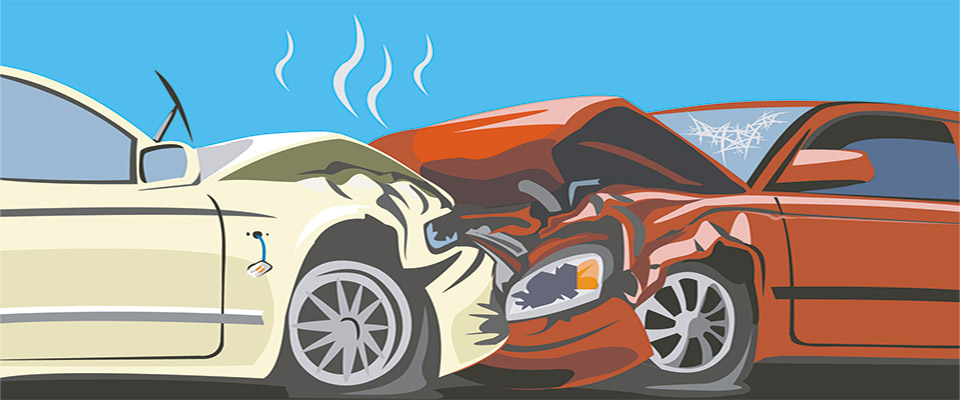
The conflict between Naturalism and Science
The return of the Alchemists
May 2016
In his latest, provoking book on faith and science, philosopher Alvin Plantinga argues that no profound conflicts exists between the Christian faith and science, but indeed between Naturalism and science. Who embraces Naturalism can no longer rely on science, according to Plantinga. The conflict is real and deep, because Naturalists and Darwinists reintroduce an Alchemistic view on matter that has been refuted more than two centuries ago by empirical science.
Read more >>

Ten misconceptions about how the DNA changes
Can mutations produce mutation protection?
October 2015
In 2015, the Nobel Prize for Chemistry was awarded for the discovery of the mechanisms for mutation protection and repair that are present in every cell. Because of this, in the media and on internet fora (e.g. SKEPP.be) a discussion has arisen on the question "Can mutations produce mutation protection?" anIn these discussions, many misconceptions on how the DNA changes become evident.
Read more >>

Limitations to Evolution
Research at the interface of Change Theory and (Evolutionary) Biology
August 2015
Unrepairable mutations cause cancer and hereditairy diseases, and severe selective disadvantage, in stead of continuous improvement and expansion of the DNA
Read more >>
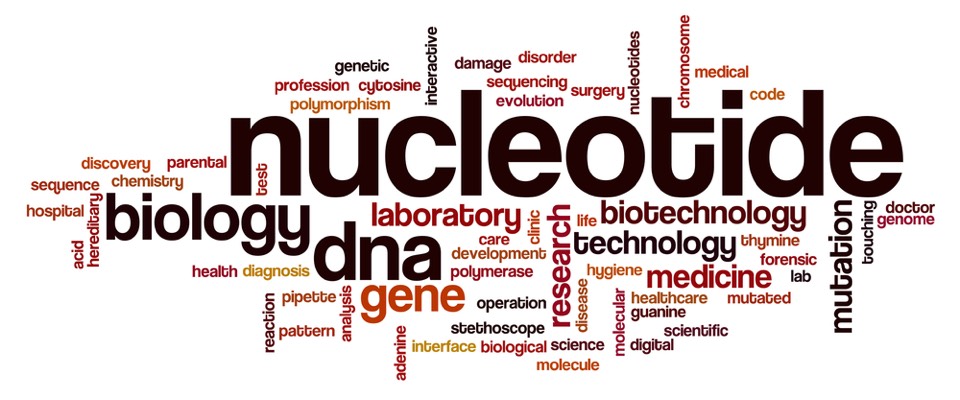
The Evolutionary Dynamics of Digital and Nucleotide Codes
Publication in the peer reviewed Open Evolution Journal
February 2011
Digital codes (computer programs) and nucleotide codes (DNA) are both protected against mutations. This protection must be switched off or at least dysfunction, to expand nucleotide codes with new functionalities. Dysfunctioning mutation protection, however, is the origin of cancer and hereditary diseases, which reduce the capacity to live and to reproduce.
Read more >>
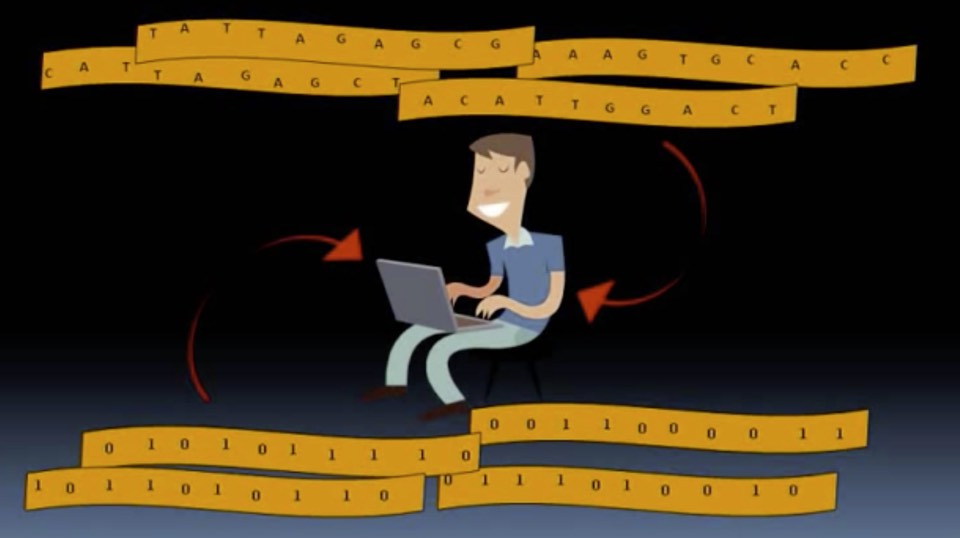
Contradiction in Evolutionary theory
You Tube Video presentation
February 2011
Growth of the length of nucleotide codes through the accumulation of irreparable, advantageous, code expanding, inheritable mutations – as proposed by evolutionary theory – requires the mutation protection to be switched off or at least to dysfunction. This will cause cancer and hereditary diseases, and severe selective disadvantage.
View the video >>
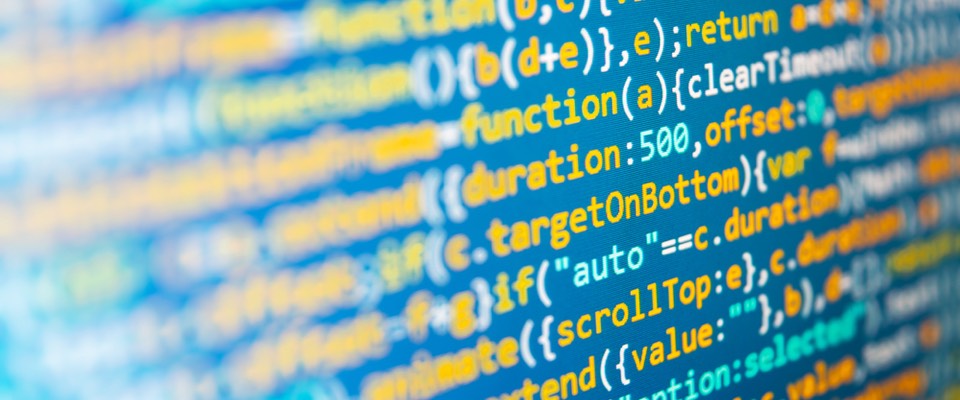
The application of artificial evolution in software engineering
Research Paper
November 2010
Review of a project of software-development companies to reduce the cost of software engineering by artificial evolution.
Read more >>

Creation and evolution: the scientific state of affairs
In Christian circles, frequently the (hopeful) question is asked whether the natural sciences can provide arguments that support the creationist model
September 2014
Evolution exists. Living nature constantly adapts to changing conditions through the regulation of genes (‘gene-regulation ') and by recombination and selection of gene variants (‘alleles’). But these mechanisms for change of the DNA neither produce new alleles, nor increase the length of the DNA, and work within the boundaries of the mutation protection of the DNA.
Read more >>

Summary criticism Evoskepsis
Contribution to the Darwin year 2009.
February 2009
Only in mythical stories, molecules possess an intrinsic desire to clot into ever more complex substances, into organic soup, RNA, DNA, a primitive gene, cells, an ever more complex organisms. In the real world, the natural course of events is exactly the opposite.
Read more >>

Darwin and the return of the alchemists
Contribution to the Darwin year 2009
February 2009
The aim of science is to reveal truth. Thereto science puts questions like: Is the earth flat or round? Does the sun spin around the earth or does the earth spin around the sun? What are random processes capable of? What is the natural course of events?
Read more >>

Problems in Evolutionary Theory
Flyer (folded A4)
September 2007
A scientific investigation of the contradiction of the theory of evolution with everyday experience and empirical science to stimulatethe debate in the scientific community over the tenability of the theory of evolution.
Read more >>

The Theory of Evolution in the Perspective of Thermodynamics and Everyday Experience
Scientific Paper.
May 2006
In homes, offices, factories and laboratories, chaos never turns into order on its own and proceeds to maintain and expand itself, although the theory of evolution suggests this would be a normal and natural event. Instead, any order turns into disorder sooner or later, as predicted by the second law of thermodynamics. Everyday experience and empirical science seem to contradict the theory of evolution.
Read more >>

Conclusions of ISCID-discussion of the paper ‘The theory of Evolution in the perspective of Thermodynamics
Conclusions of ISCID-discussion of the paper ‘The theory of Evolution in the perspective of Thermodynamics
May 2007
In the domain of religion, any guess, fantasy or belief on the origin of living nature is allowed. In the domain of science, however, we need a falsifiable (and therefore somehow testable) hypothesis that does not contradict empirical evidence and empirical science
Read more >>

